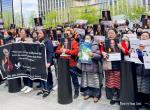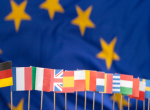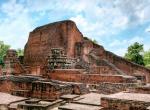The recently concluded One Rank One Pension agitation by Veterans of the Armed Forces had me thinking of various aspects of the armed forces itself. Having grown up as an army brat, I spoke to quite a few people about the agitation itself. What I discovered was that while there was complete unity in the belief behind the struggle for OROP, there were differences in opinion pertaining to the way the agitation was taking place.
One point that was emphasized in front of me time and again was “military ethos” and I started reading more and talking to more officers and veterans about this phrase. What struck me in all this was the relationship between civil society and our armed forces is.
The term civil – military relations was what I heard every time we discussed this subject. To my mind, this term is interpreted in a lop sided manner. It implies that the relations between the military and the civilian population are like labour-management relations, legislative-executive relations, or even India - Pakistan relations, where two concrete, organized groups with real conflicting interests contend and bargain with each other (the OROP agitation became that). It thus suggests a basic dichotomy and opposition between the civilian and the military viewpoints. This, to my mind, is a false opposition. First, in many societies little unity of skill or viewpoint exists among the military. Second, even where there is a distinct and identifiable military viewpoint, interest, and institution, in no society is there ever comparable unity among civilians. The word “civil” in the phrase civil–military relations simply means “non – military”. Publicists, media and others often talk about civil-military relations and, more especially, about civilian control as if there were a single civilian interest. In practice, they simply identify their own interest and viewpoint as the civilian interest and viewpoint in opposition to a hostile military interest and view-point. Civil–military relations involve a multiplicity of relationships between military men, institutions, and interests, on one hand, and diverse, often conflicting non - military men, institutions, and interests, on the other. It is not a one-to-one relationship but a one-among-many relationship.
Military and Non Military
Civil–military relations in any society reflect the over-all nature and level of development of the society and its political system. What we have to examine is the extent to which the military men and interests are differentiated from non - military men and interests. This differentiation may take place broadly at three levels:
The relationship between the armed forces and society as a whole.
The relationship between the leadership of the armed forces (the officer corps) as an elite group and other elite groups (bureaucracy, para military forces, police, corporates).
The relationship between the commanders of the armed forces and the top political leaders of society.
Thus, at the society level, the military forces may be an integral part of society, reflecting and embodying its dominant social forces and ideologies. At the opposite extreme, the military order may be highly differentiated, its members playing no important roles except military ones. At the second level, connections between military officers and other leadership groups in society may be very close; the same people may be military, economic, and political leaders. At the other end of the continuum, being an officer of the armed forces may be an exclusive professional career and incompatible with other roles. Finally, at the top level the same individuals may exercise both political and military leadership roles, or these roles may be quite distinct and their occupants recruited from different sources.
A look at 18th & 19th century shows us that traditionally, the social, economic, political & military leadership functions were all concentrated in one person - the monarch. Similarly, officers in the armed forces came from the aristocracy. The rank and file were recruited from the other strata of society and their relationship with civilians has always been a see saw effect. Over a period of time, these relationships saw a reversal. Political & military leadership roles became differentiated. Prime ministers & cabinets emerged from political parties, while, commanding generals were products of military schools and institutions. The armed forces became more professional in their approach and entry into the forces at the lower ranks also meant some kind of specialised training. We began to see non - military leadership roles becoming finer and stronger and as such, people donning military leadership roles were seen as unfit for such leadership roles.
Change in Emerging Societies
Earlier, the citizens played the military role & it was considered a responsibility of citizenship. The army of the nation state was the citizen body organized for war. Aristotle said, “The citizens of a free state ought to consist largely of those only who are capable of bearing arms.” (a point which was heavily debated later on). In feudal society all roles were differentiated on a class rather than functional basis. The peasants occupied subordinate positions in all three capacities (military, economic and social). The nobility and knights combined political authority, economic control of the land, and military leadership. In the centralized bureaucratic empires, the military was one component of the bureaucratic structure and usually did not reach a high level of differentiation.
The emergence and existence of a professional officer corps has witnessed a key difference in the civil – military relationships. Such an officer corps is a key aspect of the process of modernization, as also the foundation of finer lines being drawn between the military and non -military leaders.
The pattern of military and political modernization varies from country to country. The process seen in Europe and United States is different from what we have witnessed in Asia, Latin America and Africa. In Europe and the United States, political modernization has by and large preceded the development of a modern, professional officer corps, with France & Germany probably being the exceptions.
Asia, Africa & Latin America offer interesting case studies here. By contrast, in some of these countries, the military leaders have often also been leaders of modernization. As part of their “defensive modernization” process, the army here often became the most modern & effective institution in society & military leaders the most ardent exponents of modernization & progressive reform. They also took control of political power in the same manner. The military frequently possessed advantages over other groups & institutions because of its greater organizational understanding & discipline and hence its ability to get things done; its concern with national goals rather than with the parochial interests of class, party, ethnic, or communal group & its technical expertise.
Today’s State
The emergence of constitutional consensus in today’s state and the increasing differentiation of the military from other social groups is an interesting study. Increasingly, we see military & non – military moving away from each other with the line between politics & military affairs becoming sharper. And the officer corps is growing to be a distinct professionalized body whose leaders devote their careers to the study & practice of management of defence, security, strategy & war. However, the use of force in politics or the undue influence of the military in politics is much less of a concern, when compared to the other colossal problem that is staring at most modern democracies in the eye…without blinking, if I may add.
The more pervasive problem of civil–military relations concerns the role of expertise in politics. The modern problem of civil–military relations now exist between political leaders, on one hand, and specialists like diplomats, bureaucrats, scientists & economists on the other. And it is this that creates internal conflicts in running an effective government. The civil – military relationship is an object of grave concern in many countries today, India included. Without picking specific case studies, I would like to highlight that the concern is due to a variety of reasons.
Among civilian groups there is a legacy of fear concerning military influence in politics. Whether this fear is based on actual history or just history, the civil groups are unwilling to explore.
In constitutional democracies, the organisational structure of the legislative and the executive are more egalitarian as compared to the close, cohesive & disciplined formation of the defence services.
In times of conflict or war, the armed forces control a large part of the resources of the society and rightfully so. In times of peace, civil society works in myriad ways to retain that control and not give up.
In the modern democratic nation states, the professional army and its officer corps have played a greater role in implementing a moderate foreign policy, while certain civil groups, political parties and governments have had a more knee jerk & short sighted response. Unfortunately, the military is always associated with war & this is manifested in the view that more political power for the military & allocation of more resources will mean an increase in the probability of war. Ironically, what civil leadership does not realise is that it is never the military that starts a war in a constitutional democracy. It is always the inability of the civil leadership to manage diplomatic & bilateral relationship with the adversary that triggers a conflict or conflict like situation. The military only fights that conflict.
Military leadership today has three general responsibilities:
Represent the needs of military within the governmental framework, claiming from political & bureaucratic leaders the resources they believe & know are necessary for security.
Advise the political & bureaucratic leadership on the military implications of proposed courses of actions and prepare plans for possible military contingencies, keeping in mind national security.
Implement the policy decisions pertaining to the national interests & security of the country. The dichotomy that is visible here is of allocation and implementation. Political & bureaucratic leadership expects the armed forces to implement policy decisions without allocating the required and necessary resources for the action. This brings the higher military leaders into continuing conflicts with the political leaders and with the civilian branches of government.
The military obviously want more money, more weapons, and more men than the civil leaders are prepared to allocate, their claims on resources conflicting with the demands of civilian agencies and other groups in society. For the military to effectively implement policy decisions, a country must have political leaders who give them explicit and precise definitions of policy to use as the basis for their military plans. At the political level, however, policy inevitably has a tentative, ambiguous, and contingent quality. Add to that, bureaucratic ways of avoiding decision and blurring commitments. Most controversies in governments are due to these civil – military differences.
At the bureaucratic level these controversies regularly involve the finance ministry. The financial agencies supervise the allocation of resources within the government and are usually the ones interested in attempting to reduce military spending. The result is a military stuck between progress & development and a perpetual resource reducing finance ministry.
Therefore, what is required is a set of legitimate & effective political institutions that can help the non – military leadership fulfil their responsibilities in a constitutional democracy. The military also has its own requirements where they have to learn how to effectively deal with the politico – bureaucratic leadership.
Two stalwarts in their books have argued about this very balance/imbalance between civil – military relationship. Samuel Huntington, in his book The Soldier and the State: The Theory and Politics of Civil–Military Relations, talks about “objective civil control”, where he says a country can witness a high level of civilian control by a high degree of differentiation of military institutions from other social institutions and the creation of a thoroughly professional officer corps. His argument is that a professional military recognises its own limited sphere of influence & competence in dealing with the politico - bureaucratic leadership. It is this that pushes the military leadership to succumb to a role of a subordinate of the state. Samuel Finer, on the other hand, in his book The Man on Horseback: The Role of the Military in Politics states that professionalism alone does not prevent military intervention in politics. His point is that professionalism by itself may spur the military to political intervention because they largely see themselves as the servants of the state rather than of the government in power & because they object to being used to maintain domestic order.
As democracies mature, it is imperative that politico - bureaucratic leadership respect the armed forces for their selfless service to the nation. This lack of respect and dignity towards the military leads to insurmountable damage of how civilian society views the military. I remember reading somewhere… a man whose enemies are faceless bureaucrats almost never wins. It is our equivalent to the anger of the gods in ancient times. The military in turn must learn to become adept at handling this system, for they have to live with it. There is no joy in isolating oneself simply by being a specialised force. Simone Weil very rightly said, “The great adversary remains the apparatus—the bureaucracy. Not the one facing us across the frontier of the battle lines…. but the one that calls itself our protector and makes us its slaves. No matter what the circumstances, the worst betrayal will always be to subordinate ourselves to this apparatus…”
The challenge will always be fighting the internal enemy as opposed to the external adversary.
(Uma Sudhindra is a current affairs analyst, with a focus on domestic & global politics & defence. An alumnus of Fergusson College and JNU, she has been writing about international relations, political systems and the humane aspect of armed forces).
Published Date: 18th September 2015, Image Source: http://indianexpress.com
(Disclaimer: The views and opinions expressed in this article are those of the author and do not necessarily reflect the official policy or position of the Vivekananda International Foundation)









Post new comment